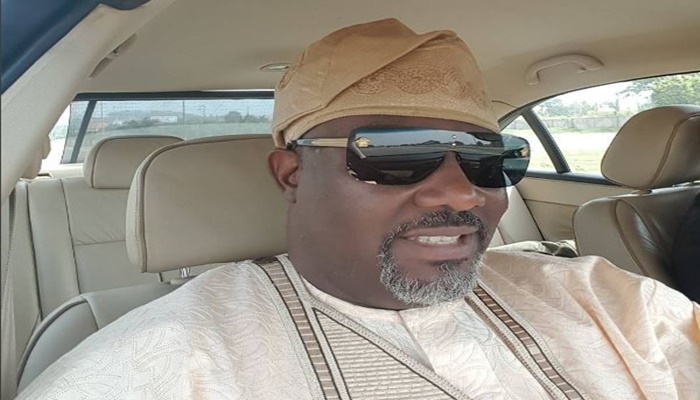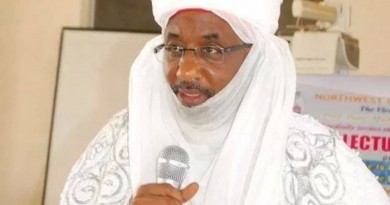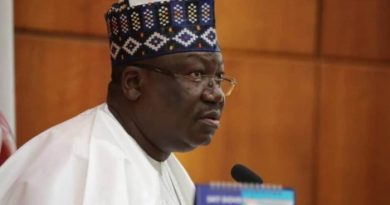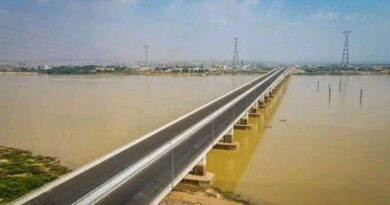Melaye visits Alma mater, commissions ABU’s 10mw solar power
Remarks of the distinguished Senator for Kogi West, Otunba Dino Melaye on the groundbreaking ceremony of the Ahmadu Bello University Zaria’s 10mw Solar IPP- November 28, 2016, Zaria
Excellency, Your Royal Highness, Esteemed Vice Chancellor, my Professors, lords, ladies, gentlemen, graduates and under graduates of this august institution. I stand on all protocols.
Today we are gathered to break ground that was first broken by the founding Chancellor of this august institution. In the history of this great institution of learning, today stands among its most seminal moments, to build a sustainable power infrastructure that is quick to install, easy to maintain, but above all relies on the abundance of God given sunlight to generate the electricity this university needs to shape and stimulate the young minds of today who become the leaders, innovators and captains of industry tomorrow. For be sure, O students, your generation may represent less than 40% of Nigeria’s population but you are 100% of Nigeria’s future.
I am humbled by the courage of the man who saw this vision for our teeming youth and had the courage to establish a university in northern Nigeria, a university that has become one of the leading institutions of education not only in this country but on the continent. I am told that when Saudanna proposed the university, many northern leaders were opposed to the idea fearing that only students from the south will attend. His response, “Let them come” meaning that they will learn from us and we will learn from them. Today, ABU has the most diverse student body in terms of federal character of any university in the Federation. Is there any greater testimony to this vision than that?
Let me even borrow some of the words he spoke at the 1963 inauguration that have inspired me:
“You are unique in that we stand at the meeting point of two of the major cultural systems of the world, Islamic culture from the East and Christian culture from the West, and meeting in the presence of a third culture, that of the ancient state and empires of Africa itself. We should introduce western ideas and technologies where necessary but it must be without disrupting our existing spiritual, cultural and social values.”
I am a proud alumnus of this august institution, and today I have come to bring my physical, moral and other resources to bear in support of a project I believe will come to define ABU in the coming years. We all know, Nigeria’s power deficit is a serious drag on our ability to diversify and industrialise our economy. It is an even bigger drag on education. Students and faculty suffer the effects of epileptic power supply. It is a cause of epileptic education, with attendant epileptic outcomes. From equipment spoiling to unsanitary conditions in our halls of residence, lack of power is the bane of our academic and social existence. It forces the university to divert funds to buy diesel that could be better used for staff and student education and welfare.
In society at large, lack of power keeps us from raising our standard of living and lifting the masses from poverty. In Brazil under President Lula Da Silva, over 10 million families were lifted out of poverty because of a programme of electrification called “Light for All”. Vietnam in Asia has experienced 14% growth in its Power sector, when most countries are lucky to experience 8% growth. We in Nigeria have a power sector that, though privatised, still struggles to deliver 5,000 mega watts and even then relies on government for subsidies. Brazil by comparison has one power station (Itaipu) that can generate 14,000 mega watts. One Brazilian power station generates three times more power than the whole of Nigeria is currently able to deliver to consumers.
We may be Africa’s largest economy but each Nigerian on average consumes less power in a year than Ghanaians or South Africans. Imagine if we had adequate power to keep the textile industries thriving, would we need to wear cloth made in China? Imagine if we have had stable power in Kano, would we need to import cooking oil? Imagine if we had stable power, would we be wearing Italian leather shoes? Imagine if we had stable power, would be importing desks and chairs or even tomato paste? Ground nut, cotton, textile, leather and furniture were thriving industries existing in the north during the time of Saudanna; Industries this university was supposed to supply with graduates eager to join the workforce. They are all dead because of lack of power. That is not your future. It is not your portion. Imagine O students of today, IF YOU HAD STABLE POWER, THINK OF WHAT YOU CAN DO!
Today is the first step in reclaiming Saudanna’s dream, we break the ground again to lift up our university, our economy, our society. This proposed power plant is your ticket to the Nigeria of your dreams. A dream Sir Ahmadu Bello made real 54 years ago.
This project will not only give you the light you need for your studies, but will provide you with the practical experience in managing projects and maintaining power stations, critical training you will need to illuminate your careers.
God said “Let there be light” I say, “Thank God”. And you too should thank God, your teachers and university administrators for faithfully carrying the torch Saudanna lit. It is what makes this university so great, and with your participation, will enable your generation make the great leap forward Nigeria so clearly needs and Sir Ahmadu Bello yearned for for our generation and generations of students to come.
Thank you very much.




